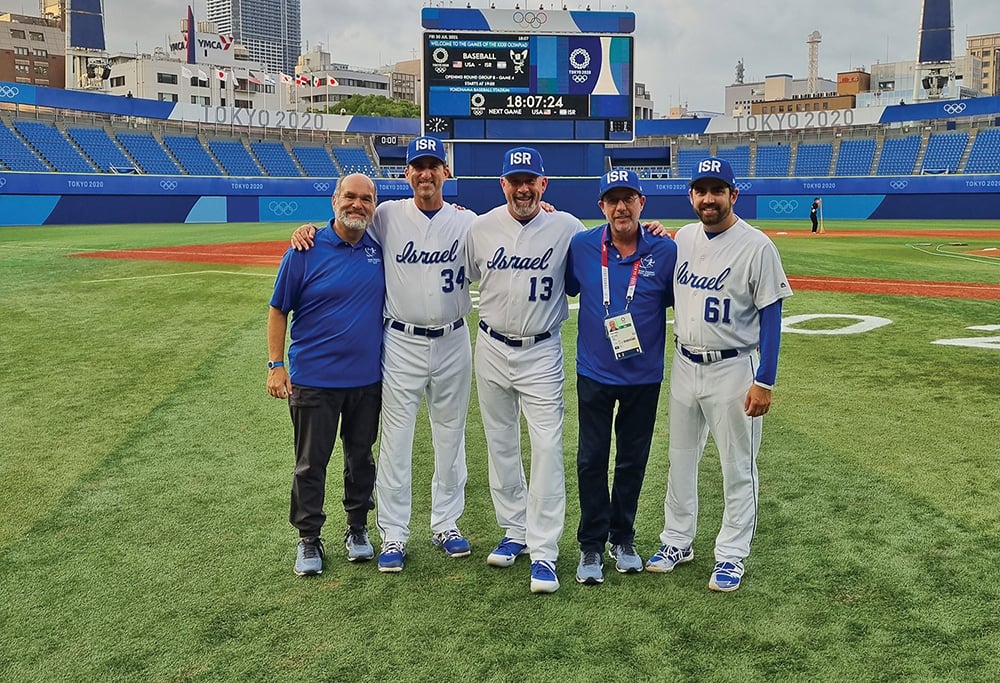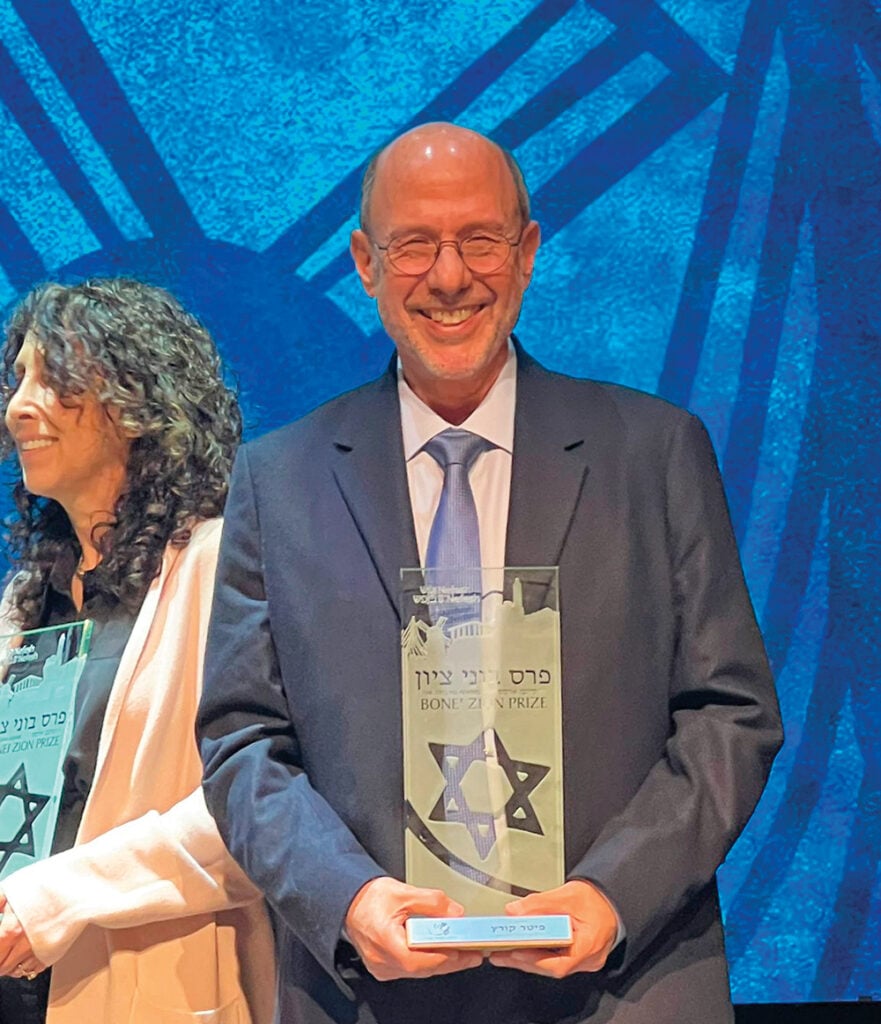
When die-hard Mets fan Peter Kurz made aliyah in the early 1980s and then again in 1989, he brought his love for Israel to a country where few people had any interest in the sport, let alone even knew the rules of the game. At the time, there was only one regulation baseball field in Israel on Kibbutz Gezer. So when he learned about a youth baseball league in Tel Aviv a decade after his aliyah, he took his son Amit to play, hoping that his son could also experience the comradeship that is so unique to baseball. Almost immediately, Kurz was asked to coach the team and soon thereafter, to take over the team. One event led to the next and before he knew it, he was managing Israel’s national baseball team. Kurz continued to take on leadership positions with Israel Association of Baseball (IAB) that included serving as the general manager of the Olympics team and now the CEO of the organization.
Kurz’s first trip overseas with the Israeli national team was to Holland, where the team lost all its games. But Kurz saw what many others could not envision at the time: a growing market for baseball in Israel and the development of homegrown talent. When he returned with the team to Israel, he continued to explore new avenues for growth. He made contact with former professional players in the United States who took an interest in the fledgling sport in Israel, and slowly raised funds and secured important relationships to develop local talent and attract interest in the sport.

His big break came in 2012 when the World Baseball Classic (WBC) extended an invitation to new teams to compete in the qualifying rounds. One of those teams was Israel. Kurz’s first mission was to build a team, so he met with three retired Major League Jewish players from the United States—Gabe Kapler, Brad Ausmus and Shawn Green—to enlist their support. The four of them built a team of primarily Jewish players from the Minor League and recently retired Major League Players, who were proud to don the uniform of Team Israel, along with a handful of Israeli star athletes.
In its first appearance at the WBC in 2013, Israel did not make it into the main tournament, but in 2017 the team had an incredible run that led ESPN to dub it, “the Jamaican bobsled team.” At the beginning of the tournament, nobody paid serious attention to the Israeli team, but they had major wins, including against the Korean and Cuban teams. These victories led some big names in baseball to start paying attention to the blue-and-white team. Kurz calls this run “an incredible journey,” one that would raise Team Israel’s reputation on the world stage.
Kurz was determined to make a bid at the 2020 Olympic Games in Tokyo, which ended up being postponed to 2021 due to Covid. The Olympics Committee did not have high hopes for sending an Israeli delegation to compete in baseball and basically brushed off Kurz. But he developed a multi-pronged strategy to achieve his goal, which included bringing ten Jewish players from America on aliyah so that they could represent the Jewish State at the Olympics with their Israeli passports. After the team’s impressive finish at the Olympic qualifiers that secured them a spot at the Olympics as the European representative, Kurz went back to the committee and told them that he is sending 24 athletes to represent Israel in Tokyo. “They were in shock,” he said with a laugh.
In fact, much of the Israeli public was shocked that Israel was sending a baseball team to the Olympics. Unlike soccer and basketball, which are popular sports in Israel, many Israelis find baseball either slow-paced, boring or complicated. But for a few weeks in the summer of 2021, Team Israel gave Israelis and Jewish people around the world some sweet moments of Zionist pride. Despite being ranked 24th in the world going into the Olympics, Israel placed fifth out of a total of six teams and were only a few outs away from winning a medal. And fans might recall watching many of the players don a kippah during the playing of Israel’s national anthem at the beginning of each game.
For Kurz who built Israel’s national team, these are the moments that give him goosebumps. “It doesn’t matter if it’s the Olympics or just a small tournament in Switzerland or Italy or wherever it might be. When the Israeli team lines up on the lines and they play the national anthem of each of the teams and they play the Hatikva…it’s an incredible feeling of pride,” he shared.
When Kurz began his relationship with Israeli baseball over two decades ago, there were about three hundred players in the league, most of them from Anglo households. Today the league boasts eight hundred people, of which more than half are Israeli-born. There are four fields across the country, and another one is currently under construction in Beit Shemesh with support of Jewish National Fund—USA. Kurz takes pride in the fact that some of the young players that he coached more than twenty years ago have developed into talented athletes, such as Alon Leichman who is now an assistant pitching coach on the Cincinnati Reds. He is equally proud that so many young children who immigrate to Israel from the United States can feel right at home playing a very American sport, but in Israel.
Kurz hopes to grow Israeli baseball to at least 2,000 players. For now, he is looking ahead towards the 2028 Olympics (baseball was pulled from the 2024 games). Earlier this month, he was awarded the 2023 Sylvan Adams Nefesh B’Nefesh Bonei Zion Prize that recognizes outstanding immigrants who have made remarkable contributions to Israeli society. Thinking back on his visits to the former Shea Stadium to watch Mets games, to singing Hatikvah at the Tokyo Olympics, Kurz sums up what baseball has meant to him: “It’s definitely been my calling.”
Alisa Bodner is a Fair Lawn native who immigrated to Israel over a decade ago. She is a nonprofit management professional who enjoys writing in her free time.









